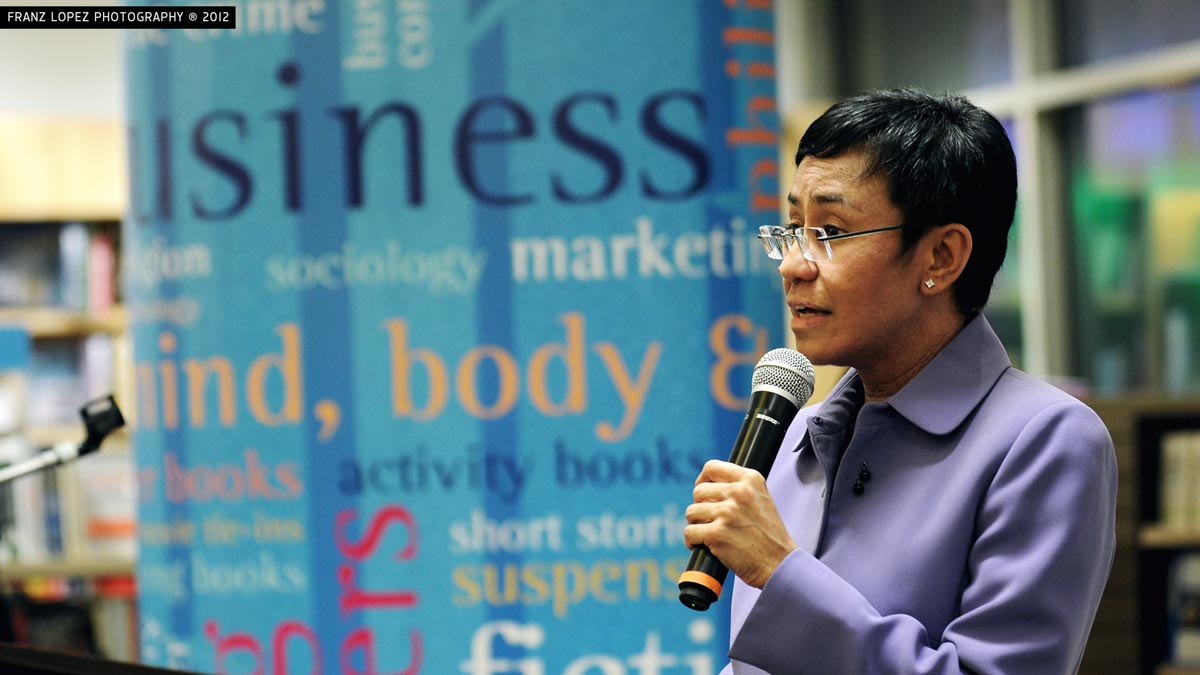
Maria Ressa, fierce defender of journalism, receives Nobel Peace Prize
In 2020, she was a guest on NLP’s podcast, Is that a fact?
The News Literacy Project (NLP) offers its congratulations to 2021 Nobel Peace Prize winners Maria Ressa, the founder of the media company, Rappler, who has fearlessly confronted violent authoritarian rule in the Philippines, and Dmitry Muratov, a founder of of Russia’s independent newspaper, Novaya Gazeta, which provides fact-based reporting on controversial topics other Russian media rarely cover.
The Norwegian Nobel Committee is honoring Ressa and Muratov “for their efforts to safeguard freedom of expression, which is a precondition for democracy and lasting peace.” In announcing the prize, the committee recognized “their courageous fight for freedom of expression in the Philippines and Russia. At the same time, they are representatives of all journalists who stand up for this ideal in a world in which democracy and freedom of the press face increasingly adverse conditions.”
“Ressa and Muratov exemplify the vital role that journalists are playing throughout the world in holding the powerful accountable in the face of serious risks to their own freedom and safety,” said Alan Miller, the founder and CEO of NLP. “We applaud the Nobel committee for recognizing these profiles in journalistic courage.”
Speaks with NLP about journalism and authoritarian rule
In 2020, Ressa addressed the question “Can journalism survive an authoritarian ruler?” as a guest on NLP’s new podcast Is that a fact? During that interview, she spoke about how social media feeds narrow our view of the world and give legitimacy to falsehoods, propaganda and conspiracy theories.
“This is how you create alternate realities,” she said. “That’s the world we live in today… it’s important that we really understand that social media has changed the information ecosystem globally. What it’s done now is that it’s become part of the dictator’s playbook because a lie told a million times can become a fact.
“And with micro-targeting, it takes our most vulnerable moment to a message and sells it to the highest bidder, whether that is a government or whether that’s a company, anyone who pays for it, right? And that is alarming to me because journalists can’t even do our jobs if we all don’t agree on facts. If you don’t have facts, you can’t have truth. If you don’t have truth, you can’t have trust. Without any of these three things, you can’t have democracy.’
Listen to the full interview.
Criticism of Facebook
Ressa has been a vocal critic of Facebook, which the administration of Philippines President Rodrigo Duterte has used as a powerful propaganda tool. “Facebook is now the world’s largest distributor of news and yet it has refused to be the gatekeeper. And when it does that, when you allow lies to actually get on the same playing field as facts, it taints the entire public sphere,” she said in a 2019 interview with The New York Times.
She continues to uphold the highest standards of journalism and push back against Duterte’s regime, despite being arrested and jailed and becoming the target of multiple death threats. Ressa has personally experienced how hard it is for journalists to hold the line against an authoritarian leader when press freedoms are threatened.
For decades, Muratov has fought for freedom of speech and professional ethics and standards of journalism under worsening conditions, harassment, threats and violence. Six journalists at Novaya Gazeta have been killed since its founding nearly three decades ago.
